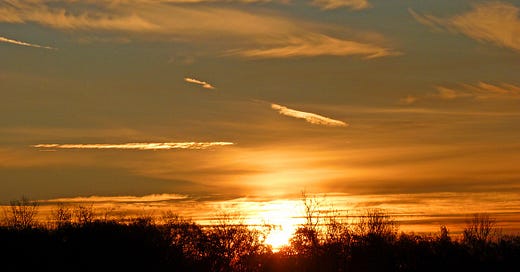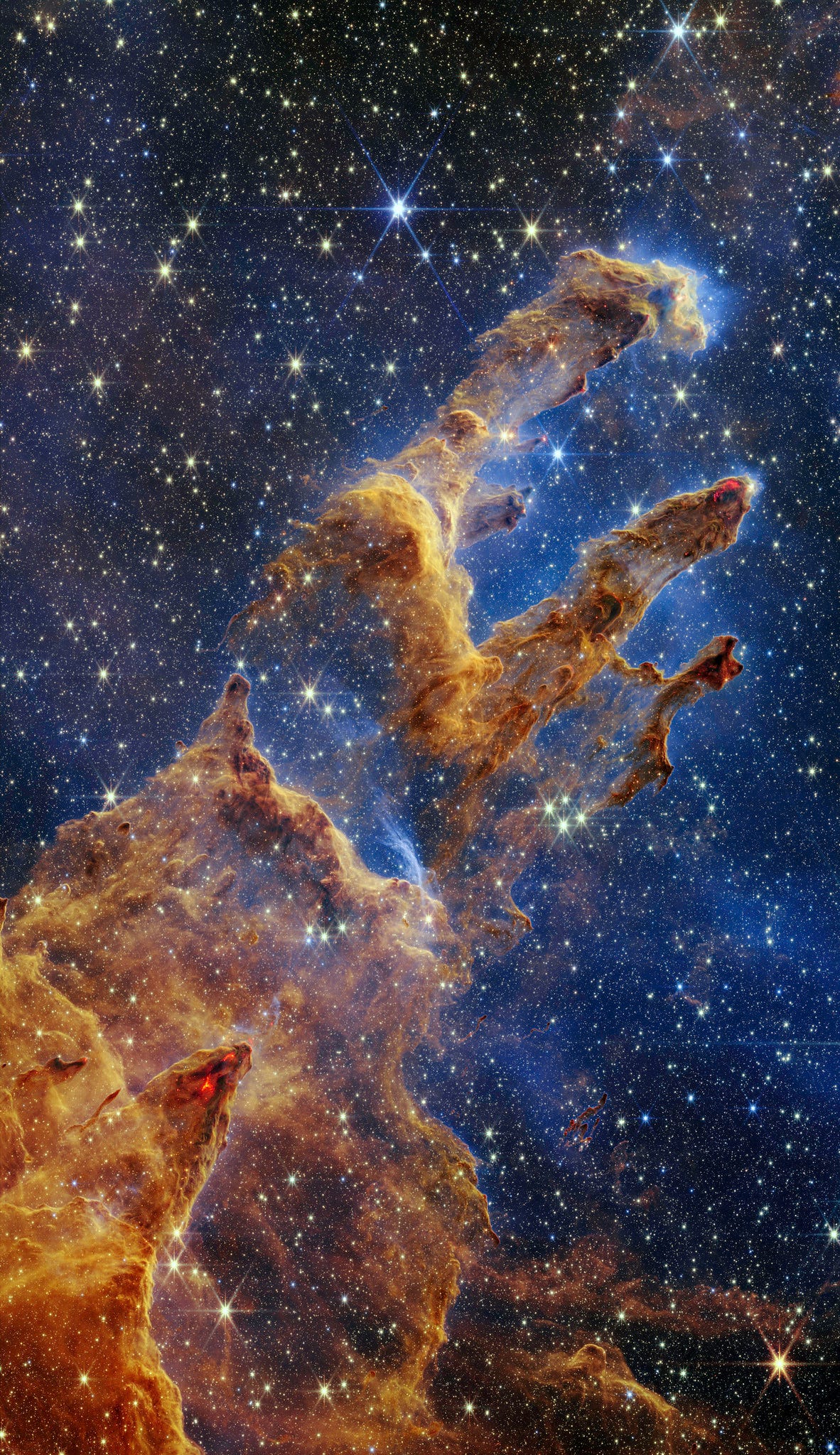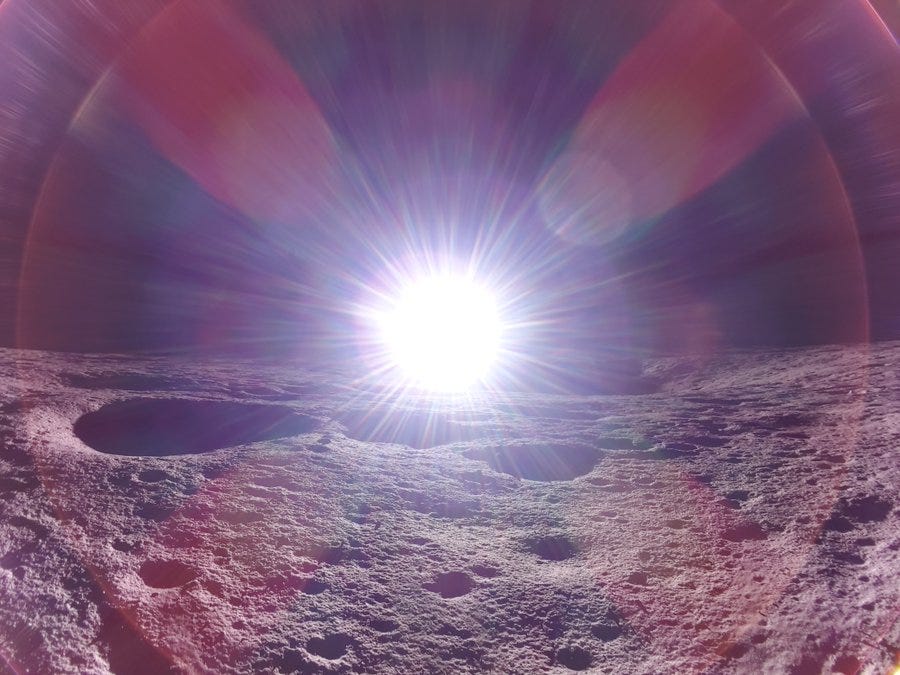Dawns from New Horizons
To watch the sunrise is truly something special. It is the start of something new, the verification that the old cycle continues. The first people on the street, the first few bashful songs of birds. The rising temperature, the drops of dew descending the petals and leaves, the rustle of sheets in a bed. It’s anticipation, preparation, like a wake up alarm but gentler, like a kind shove of the shoulder.
Dawns alone are caring and private, like a book, a blanket and a steaming cup of coffee. Dawns with friends and family are a campfire, marshmallows, a small secret guitar concert and a group hug. Dawns with your partner make from the world your alcove, tenderly keeping all the things both of you hold dear and aspire to within sight. But there is a type of dawn that stands above all these, lovely as they may be: a dawn with children.
A dawn with children is brimming with future and hope. It is choc-full of promise and bliss, it is outright bursting with potential and unbound energy. It is the brightest stars in the sky shining down on your path.
I have moved a lot in the last few years. Between cities, between countries. The only way I found to make myself feel at home in an unfamiliar place is to go see the sun go up at least once. It shows clearly that everything is still the same, and yet new. Watching the dawn is the perfect distillation of having hope in the future, that there is something coming, something good or at least better.
It takes a special kind of person to fully understand this feeling. The teacher that prepares custom lessons for their students during their free time, building better humans for the future one page at a time. The nurse that goes above and beyond to care for their patients in their most personal moments. Volunteers at humanitarian disasters, going into the breach day in and day out to help those most in need, because things will get better. The scientist that works weekends in hopes of finding nuggets of valuable knowledge that could cure the disease of some person they will never ever meet. The engineer and technician, producing prototype after prototype to attain higher efficiencies, better performances, safer devices. The explorers, the pioneers, the entrepreneurs burning bright for all humankind, taming the unknown into the known and safe. With some luck their explorations will benefit their friends and loved ones, they think, while they eat dehydrated food and sleep very little. There is no better or worse job on this list. We need them all in sufficient amounts. This is what hope looks like. Endless, unglamorous, glorious, work done with a smile, day after day, knowing everything will be all right.
Space exploration is one more hopeful fool on this list. The space explorer is by far the most hopeful individual you can ever meet in your life. They have unwavering trust that not only them, but all of us will be fine. That humanity as a whole will muddle through, somehow. That we will understand how rare, how valuable, how fragile our pale blue dot truly is. That on Earth, on this ball of mostly silicon and oxygen, there is a forest, with a tree, with a leaf, with a million cells that are alive. They understand the tides, the ocean currents, the hurricanes and the volcanoes. They know how to heat up or cool down an atmosphere, where to find minerals, what living beings can be found in Antarctica, Siberia or the Atacama desert. They see a sphere fully integrated, a system with all its facets. A planet, and everything in it. And other planets too. They have perspective of how things are, and how they could be, for better or worse. You need to have their exact planetary perspective if you want to understand how to heal the Earth. To be a space explorer is to believe that we will fix our manners and treat our neighbours in the tree of life better, that we will eventually find a balance and share the land, the air and the seas equally. Only then can we leave our home at peace, confident that it will still be there when we come back.
Space explorers will also look out, far away into the black, and see light. Spirals of fireflies in a circular dance. Pillars that sustain the Universe. Silky networks that connect everything like spider webs. Nothing that is actually something, shy dust under a dark cover that does not want to be seen. A distant, slow simmering in the surface of space-time. It is no wonder they are a bit touched in the head really, in the best kind of way.
Most importantly, they see other planets and dare to say “maybe”. This is normally called space colonization, but I prefer the label space homesteading. It contains the key word of the entire affair which is “home”. Space homesteaders see the seas of dust of Mare Tranquilitatis, in the Moon, and think about trains rolling around lazily on metal rails. They see Shackleton Crater and they think it has lovely lighting and communal ice rinks. They see Utopia Planitia on Mars and they think about fields of corn under a greenhouse. They think of a hostel with B&B on the rim of Olympus Mons to attend the climbers and hikers coming from all parts of the Solar System and listen to their stories. An apartment with great views on the border of Valles Marineris would be lovely too, as well as on the coast of the Hellas Sea. They see a desolation of rocks and dust and say, it’s a fixer-upper. It just needs some elbow grease. They do not even need a planet, mind you. A pile of gravel hurling through the Solar System already has them drawing blueprints and preparing mining tools. Space homesteaders are mad and brilliant and clear-headed all at once, and it is sometimes overwhelming to even think on their terms.
They are not delusional. They understand far better than anyone the difficulty of the task they have set themselves to accomplish. They spend years or entire lifetimes carefully collecting the necessary information to even attempt any of this. They build new machines and watch them explode on a regular basis. They have failed, many times. They have seen their colleagues die. They know they can die too. It is fine by them, as long as we move one step forward in the right direction. They have measured with painful exactitude the long distance that we still need to travel to reach the target, shining far away in the horizon. A rocket launch shining in the distance, breaking a new path into the world in a deafening fracas. Looking exactly like a sunrise too.
There is a vision I cannot get out of my head. One day, a parent will wake up early, have a pick-me-up cup of coffee, and wake their children up. They will complain, they will protest, but their curiosity will also get them up and ready, eventually. The little troop will yawn all the way to the closest glass surface observation deck, where they will be welcomed by other families, tense in expectation. They were almost late, but just almost. The parents will find a comfortable seat, facing the East to a dark, endless sea of dust under an ocean of stars. Conversation is scarce, hushed expectations float in the quiet air. The kids feel the trepidation, and they are totally quiet and unmoving for the first time in weeks, sipping their drinks under a blanket. Just a few moments later, something changes. Murmurs start filling the rooms, fingers point forward.
The change is slow but undeniable. They will see first the peaks of far away mountain peaks, then nearby crater rims and boulders. They will see the solar arrays in the hills, the communication antennas perking up, the shine of the bubbles of other neighbouring surface habitats, the rovers and dozers ready to move some more regolith. The light will rain down the hills, covering the dark fields with gray and white, punctuated by a single massive shining point over the horizon. The stars have closed their curtains, they cannot be seen anymore. The children will be speechless. It will be the first lunar sunrise they have ever seen. They do not understand what they are seeing yet, but they do feel the same as we do. They will one day understand that their parents took them to see the dawn, a new dawn from new horizons, new for them and for all humankind.









